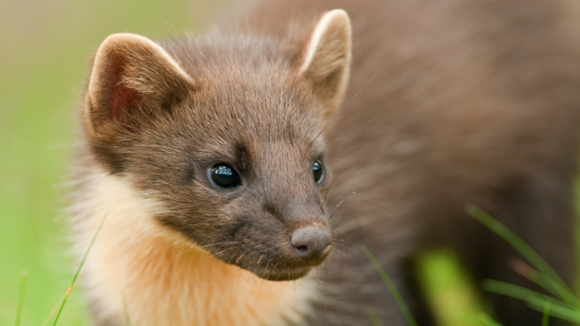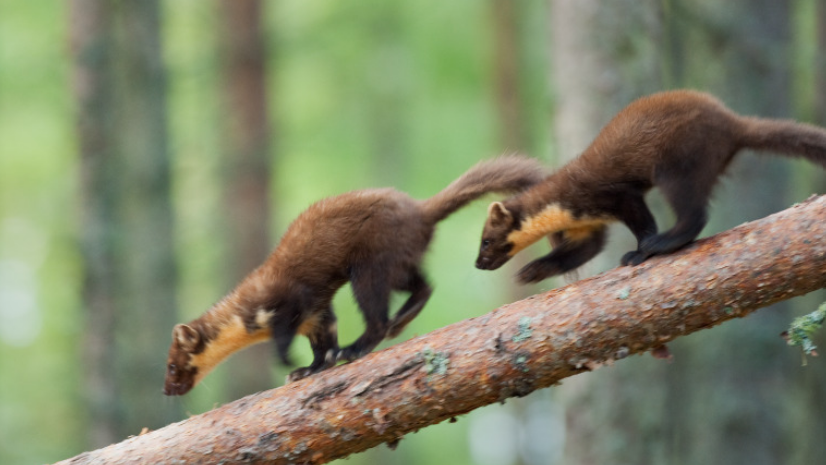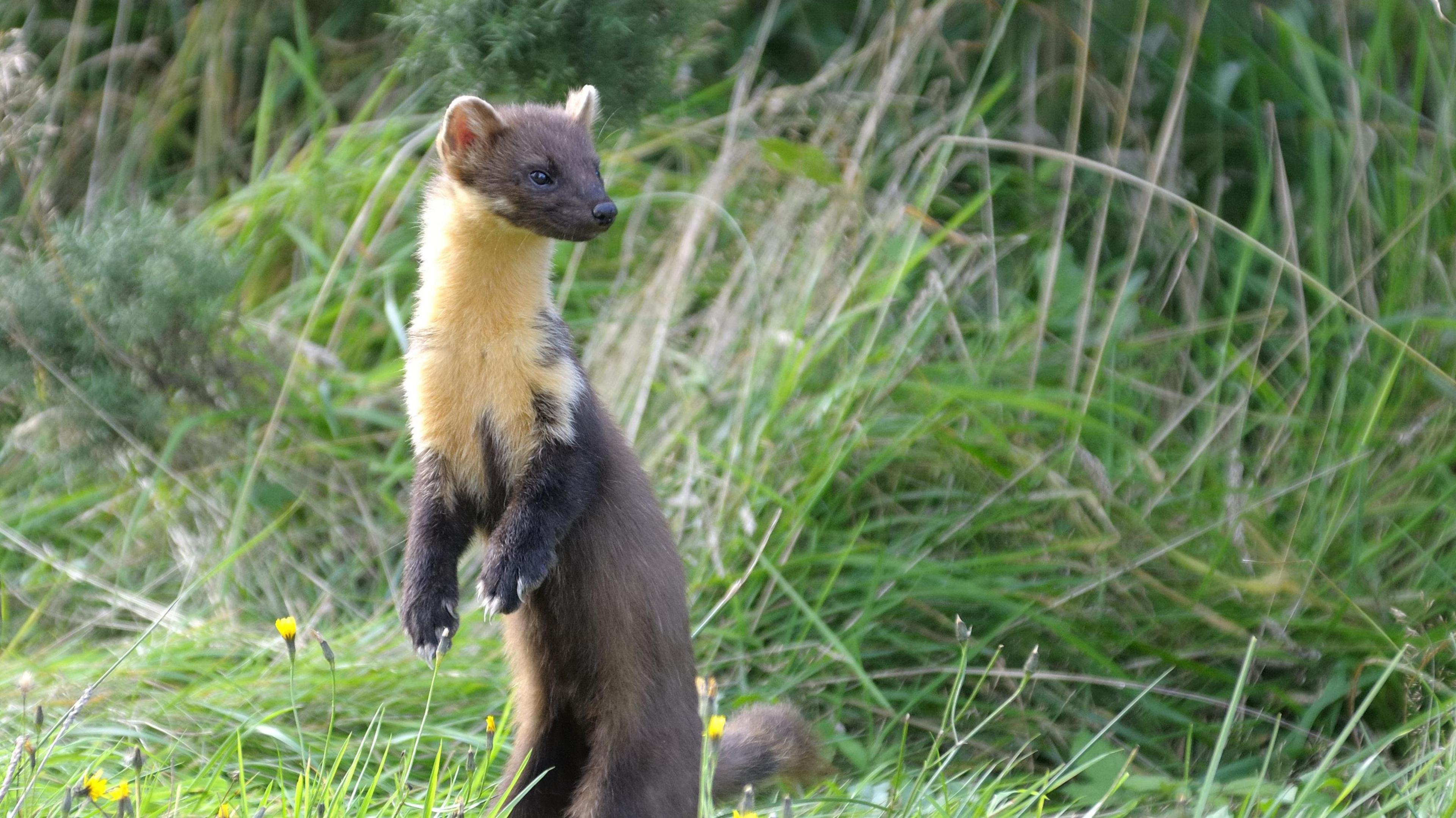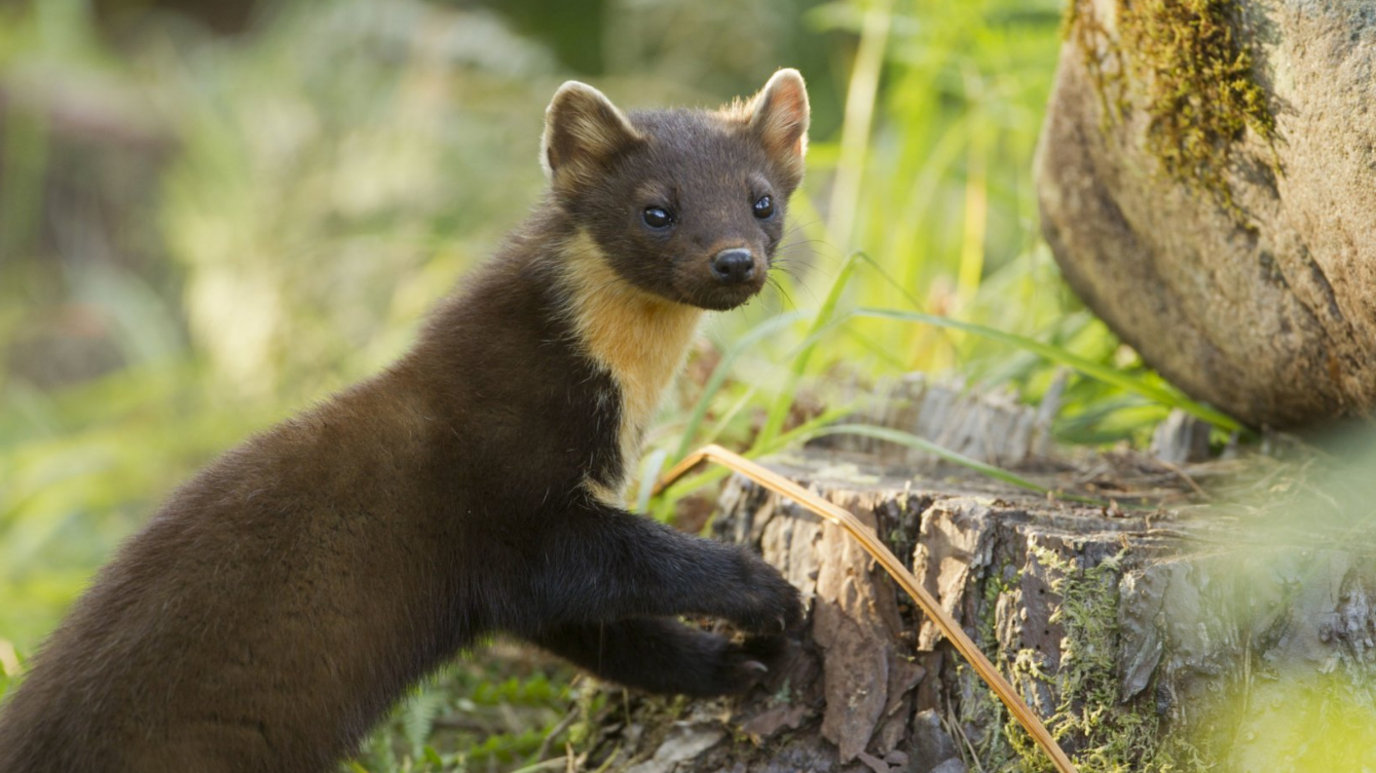'Small number' of pine martens hit by vehicles

Devon Wildlife Trust said camera traps were being installed to track
- Published
A small number of released pine martens have been hit by vehicles on roads in Devon, a wildlife trust has said.
Devon Wildlife Trust, National Highways, the Two Moors Pine Marten Project and Devon County Council said they were using camera traps to track their movements.
Conservation Manager for the wildlife trust, Ed Parr Ferris, said despite the release of 15 pine martins to eastern Dartmoor in September 2024 being "really successful", there had been a "small number of road casualties".
"Pine martens have moved out across the south Devon landscape, including places like Haldon which is a really nature-rich area," he said.
Mr Parr Ferris said: "Sadly, that movement has led to some issues with coming into contact with roads and we have had a small number of road casualties because of that."
He said the Pine Marten Highways Project was using camera traps to try and capture evidence when pine martens and other wildlife had come into contact with roads, as well as tracking their progress.
"We want to see if there are any patterns in where they are coming, if we can identify any real key hotspots of where multiple species might come into contact with the road.
"Then we can look to carry out interventions down the line."
The trust said pine martens played a crucial role in local woodlands and have been extinct in the South West for 150 years caused by habitat loss and persecution.
'Learning the landscape'
Ben Hewlett, National Highways senior environmental advisor, said: "We are installing camera traps which are automated cameras when something moves past it.
"We will use this information to determine where along the A38 the animals are crossing. Once we have that information we can explore opportunities to better manage the risk associated with pine martens in the area."
He said data sharing between National Highways and Devon Wildlife Trust showed the A38 was a "key point" for pine martens.
Mr Hewlett said: "Pine martens were moving through the landscape while they were exploring it and they were crossing several times a month."
"They are a new population and they are learning the landscape. The last time we had pine martens in the country, there wasn't large infrastructure in their way."
Follow BBC Devon on X, external, Facebook, external and Instagram, external. Send your story ideas to spotlight@bbc.co.uk, external.
Related topics
- Published11 July

- Published1 October 2024

- Published13 January
